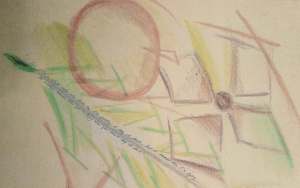Arts & Culture
The Brooklyn Museum has a current exhibition titled, “Appearances Can Be Deceiving”, which is a collection of Frida Kahlo’s personal items, on display for the first time in the U.S. and uncovered in her Mexico City home in 2004. The exhibit includes paintings, photographs, films, some of her wardrobe and other personal items. I had the good fortune of seeing the exhibit this week and what struck me as I admired the pieces and read the written descriptions was Kahlo’s commitment to situating her work in relation to her broader community. This theme is repeated over and over throughout the exhibit. Kahlo (1907-1954) became an international icon who challenged societal conventions about women and their place in the art world.
It struck me that Kahlo’s approach to her art was somewhat in opposition to the liberal notion of “autonomy.” She did not seem concerned with portraying a singular voice, like the modernists of her time; but, rather with referencing and paying homage to her cultural roots as an Indigenous Mexican woman. Kahlo dressed in traditional Mexican clothing, especially when travelling outside of Mexico using her fashion choices to express her connection and deep rootedness as an Indigenous Mexican. She sought to make Indigenous Mexican culture visible by and through her artwork, her personal art collection and home, and her wardrobe. She did not seem concerned with being labeled a “folk artist” for making these choices, and remained steadfast to anchoring her life and her work in a community she wanted to honour—her response to colonialism was to bring forward her collective past.
This Thematic Week Graphite is exploring the notion of autonomy as it relates to arts and culture. How does this notion of independence and self-sufficiency impact the way artists approach the creation and distribution of their work? What does it mean to have autonomy as an artist? And, with Frida Kahlo at the foreground, aren’t we all always participating in a “collective”? Are we truly able to assert our ostensible autonomy and really distinguish ourselves from the larger collective, whatever that collective may be? Is the concept of a singular artistic voice or vision really possible?
Flynn Gottselig, Arts & Culture Editor
Music
The subject of autonomy is very relevant in the context of music. Autonomy is self-governance, it yields authenticity. Whether it is an artist taking agency of their vocation, straying away from labels, or the idea that music, as an artform, is an autonomous entity that can be measured and analyzed as a self-enclosed system, this theme can be explored from many different perspectives.
Taking responsibility for one’s art also raises the question of the politics of music - what it means to make political statements through music and being aware of faux pas, such as cultural appropriation. Please join me in discovering the many facets of autonomy through music throughout this theme week.
Maya Hassa, Music Editor
Français
L’autonomie. C’est l’une des valeurs qui nous est inculquée dès le plus jeune âge, dans la perspective d’un jour, devenir adulte. Indépendant. Et donc libre. L’autonomie, c’est se gouverner selon sa propre loi. Jouir d’une indépendance morale, une indépendance intellectuelle. Choisir, agir et se déterminer librement.
Intimement mêlée à notre recherche d’identité, la quête d’autonomie nous questionne, nous façonne, nous pousse à nous dessiner sous notre propre plume. Cette semaine, je vous propose trois textes, ébauchant trois visions, trois interprétations de la notion aussi malléable qu’éternelle de l’autonomie.
Nina Milhaud, French Editor
Politics & Economics
Autonomy, or the lack thereof, manifests itself in our lives in various ways; sometimes without us even understanding it. It can come as a result of the collective will of the state and its citizens, and boil down to our own individual choices and actions. Questions of autonomous self-determination have been central to the historical development of political institutions and the sovereign state. Whatever scale of the societal hierarchy in which autonomy is observed, however, politics always seem to play an important role, either directly or indirectly.
With the death of empires, many ethnicities find themselves torn between fighting for their liberation and being assimilated into other nations. Their struggles against great world powers for liberation and over historical land claims, politically encompasse a complicated and ancient definition of political autonomy. Many of these peoples, stranded in a land they cannot call their home, or dubbed under a nationality that does not represent them, battle for their collective self-determination every day across the globe. The power of their will can stand up to superpowers in order to defend the people’s right to their land and freedom, and to assure the creation of their own nation-state.
While dismissed by many political theorists as irrelevant or overly metaphysical for political discourse, the autonomy of the individual will
At the same time, however, the collective free will of a population brings about other issues of autonomy, such as a nation’s self-determination. Since ‘No taxation without representation’ was bellowed from the American colonies, the idea of a self-determinate nation of people has become the foundation for Western liberal democracy. In the 21st century, however, immense forces of power and money have come to dominate political processes, calling into question how much of an impact a single citizen can actually have on the trajectory of her nation. At the same time, the power of collective social movements is beginning to manifest itself as growing portions of the world’s population struggle with the forces above them. As history continues to unfold with increasing pace and complexity, how we understand socio-political autonomy must necessarily evolve. It is our aim to shed light on some of the questions surrounding autonomy in this weeks content.
Will Hanna and Artemis Archi, Politics Editors




